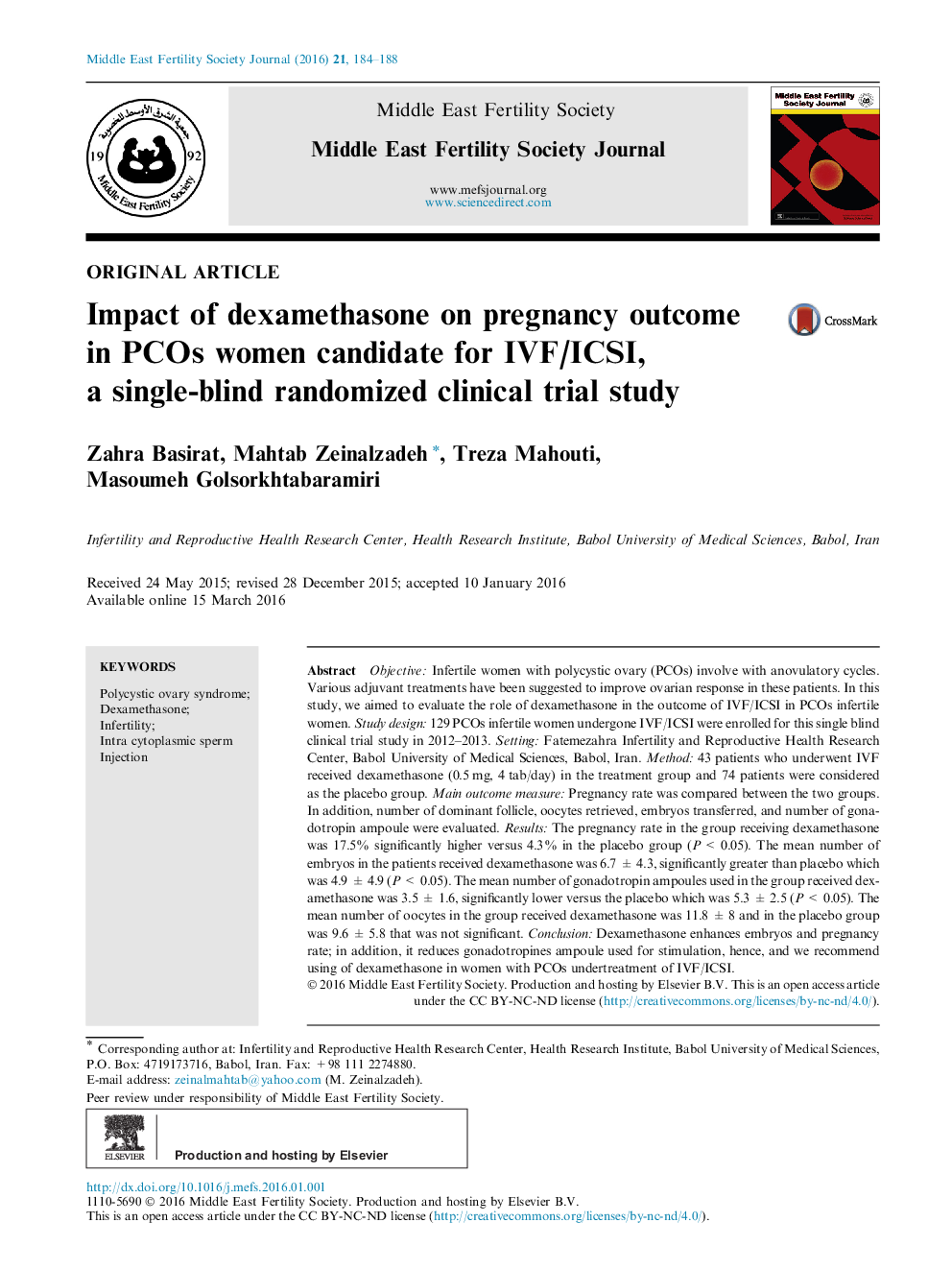| Article ID | Journal | Published Year | Pages | File Type |
|---|---|---|---|---|
| 3966044 | Middle East Fertility Society Journal | 2016 | 5 Pages |
Objective: Infertile women with polycystic ovary (PCOs) involve with anovulatory cycles. Various adjuvant treatments have been suggested to improve ovarian response in these patients. In this study, we aimed to evaluate the role of dexamethasone in the outcome of IVF/ICSI in PCOs infertile women. Study design: 129 PCOs infertile women undergone IVF/ICSI were enrolled for this single blind clinical trial study in 2012–2013. Setting: Fatemezahra Infertility and Reproductive Health Research Center, Babol University of Medical Sciences, Babol, Iran. Method: 43 patients who underwent IVF received dexamethasone (0.5 mg, 4 tab/day) in the treatment group and 74 patients were considered as the placebo group. Main outcome measure: Pregnancy rate was compared between the two groups. In addition, number of dominant follicle, oocytes retrieved, embryos transferred, and number of gonadotropin ampoule were evaluated. Results: The pregnancy rate in the group receiving dexamethasone was 17.5% significantly higher versus 4.3% in the placebo group (P < 0.05). The mean number of embryos in the patients received dexamethasone was 6.7 ± 4.3, significantly greater than placebo which was 4.9 ± 4.9 (P < 0.05). The mean number of gonadotropin ampoules used in the group received dexamethasone was 3.5 ± 1.6, significantly lower versus the placebo which was 5.3 ± 2.5 (P < 0.05). The mean number of oocytes in the group received dexamethasone was 11.8 ± 8 and in the placebo group was 9.6 ± 5.8 that was not significant. Conclusion: Dexamethasone enhances embryos and pregnancy rate; in addition, it reduces gonadotropines ampoule used for stimulation, hence, and we recommend using of dexamethasone in women with PCOs undertreatment of IVF/ICSI.
